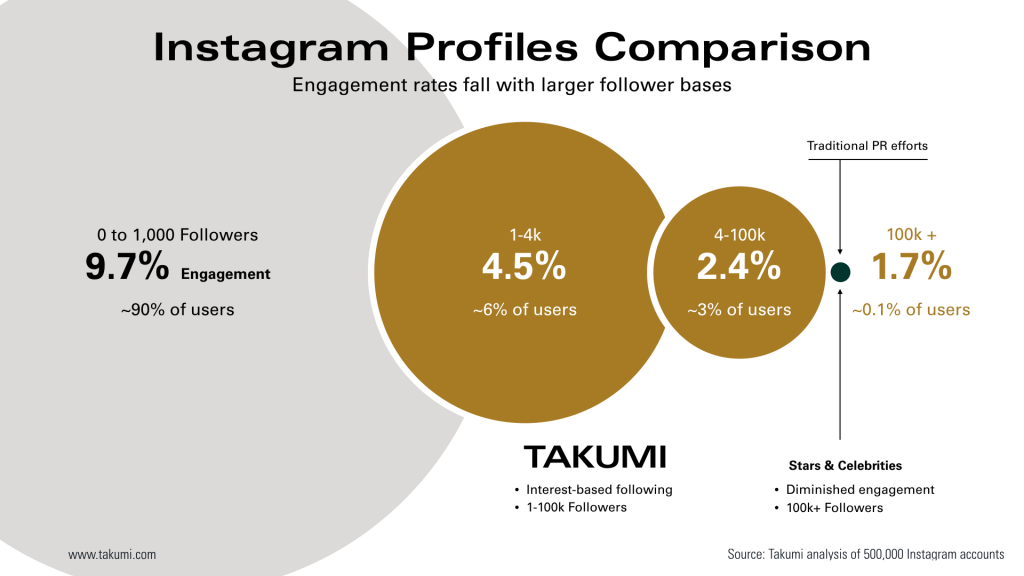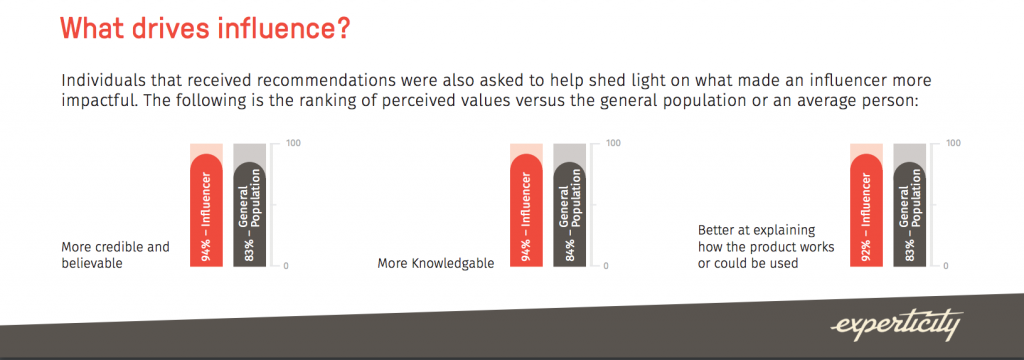ProBlogger: How to Monetise Your Influence Type: Micro-influencers | |
| How to Monetise Your Influence Type: Micro-influencers Posted: 07 Dec 2016 05:00 AM PST Welcome to the next post in our series on monetising your influence type. Last time we looked at Platform-Specific Superstars – a small percentage of all influencers. This time we're going to take a look at the other end of the spectrum. Most of us fit into the category of "micro-influencer", and it can be an exciting place to be! Who are Micro-influencers?Call them what you will – micro-influencers, long-tail influencers, the "Power Middle" – who are they and why are they getting so much attention? There is no one defining characteristic or measurement that defines you as a micro-influencer. Generally it's those of us with an online audience of less than 100,000 followers, be that a social or blog following. Some define it more specifically as having 500-5,000 followers, the power middle crowd have been defined as having 100,000-250,000 followers. You won't get a straight answer from anyone, so let's look at something other than just audience size to help figure out if you're a micro-influencer (my term of choice, so I'll use that from here on in). Generally, as audience size goes up, engagement comes down. As marketers get smarter and realise the power of engagement over reach, their gaze has drifted to micro-influencers. Here's why, neatly summed up in a graph from research done by influencer marketing platform Takumi on half a million instagram accounts. You could argue that the focus on the superstars and celebrities is warranted – 1.7% of 100,000 is still more people engaged than 9.7% of 1,000. However, here's where it gets exciting for you if you're a micro-influencer. The Advantages of Being a Micro-influencerAs a micro-influencer, the people who engage with you are likely to be more connected to you and more aligned with your passions, niche and generally of a similar demographic. It's more likely that they actually know you, or have followed you from the beginning of your online presence – they know, like and trust you. This is why reaching a smaller number of your specific and engaged audience can be better than reaching a larger number of potentially less relevant followers of a bigger influencer. This leads to another reason why it's good to be a micro-influencer: trust and authenticity. Micro-influencers are less likely to publish as many sponsored posts and ads as bigger influencers, and when they do talk about brands their recommendations are more trusted by their faithful followers. One of the reasons why micro-influencers can be even more trusted than everyday customers when it comes to recommendations is the 'expert' factor. Expertcity, another influencer marketing platform, discovered that micro-influencers have 22.2 times more 'buying conversations' than regular consumers and more consumers find them to be more believable and credible, more knowledgeable and better at explaining products than regular consumers. So maybe that's why their study showed that 82% of consumers are "highly likely" to follow a recommendation made by a micro–influencer, compared to 73% who are highly likely to act on a recommendation from an average person? It could be that the word of a micro-influencer could hold more sway than that of a friend in situations where an 'expert' opinion is more valued. The Disadvantages of Being a Micro-influencerIt's all the the word 'micro' – you may have better engagement and influence over a more specific target audience, but too often reach wins out. In order to get the same reach of a macro-influencer, marketers need to work with a group of micro-influencers, and that's hard work. Finding influencers, negotiating with them all and managing multiple content pieces vs working with just one big influencer – many marketers opt for the second. However it's not all gloom and doom, because it's often the group of micro-influencers that will deliver superior results, especially when it comes to conversion rates. Again, as a micro-influencer your audience is more specific, more connected to you and more likely to engage and act on your recommendations. Monetise by Working with BrandsWhilst it's encouraging that marketers are realising the value of micro-influencers, they can still very much try and earn your influence rather than pay for it. For example, they're more likely to offer discount codes or giveaways for your audience, rather than pay you to do a sponsored post. Rather than be frustrated with this, look at it as a way to prove your influence. If you can show a prospective brand partner proof of how you positively influenced your audience for a brand, then you're more likely able to convince them that working with you on a paid basis is less risky and will ultimately give them a return on their investment. Your first hurdle will be getting on their radar, so here are some great tips on marketing yourself. Start small and build up as you build up your evidence of influence. Focus on your engagement rates and other evidence that proves your influence, like testimonials from your followers. Get to know your audience demographics, either through the insights provided by the social platforms, Google Analytics or by directly surveying your audience. For more ideas, check out How to Pitch Brands When You Have Low Traffic. Monetise via Affiliate MarketingPut that recommendation power to work with affiliate marketing. Whilst normally a high-traffic strategy, affiliate marketing can work for micro-influencers too. Your best approach is to carefully select the products or services you affiliate. Choosing a few highly relevant products that you have a close affinity to will serve you better than promoting anything you can think of and hope it sticks. What are the products and services you use and love and find yourself naturally recommending? Also consider the value of the product and the level or type of commission being offered. Naturally higher priced items can net you higher payouts, but make sure you can stand behind why your audience should purchase them. Affiliate programs on recurring services often offer recurring commissions, so you are rewarded for the lifetime of the customer, not just a once off payment. Examples of this include email marketing and other software services. If you're going to give affiliate marketing a go, remember it's more than just dropping in a few links and hoping for the best. Don't forget the 'marketing' part – create great content around the product, tell your story and it will resonate more with your audience. Want to know more? Check out this podcast episode by Darren on how he makes money with affiliate marketing (even though he's not a micro-influencer, many strategies are the same). Monetise by Selling Your Own ProductsIf you have influence with an audience or community you have built up, no matter the size, one of the best ways you can monetise is by creating something for them to buy. Whether it's an ebook, a course, a membership community or an event, you are in a great position to listen to your audience and create what they need. An excellent example of this is when Lisa Corduff from Small Steps to Whole Foods decided to run a free challenge after having run a small blog and Facebook group for a couple of years. 550 people signed up to her challenge which she then transformed into a paid eight-week course which she has now launched multiple times to create a six-figure business. You can hear her story here. With less than 15,000 Facebook followers and just over 1500 Instagram followers she's definitely a micro-influencer who is punching above her weight due to the trust and connection she's built with her specific community. So, are you a micro-influencer? Are you having success with any of the above monetisation strategies? Which one appeals and feels most achievable for you? The post How to Monetise Your Influence Type: Micro-influencers appeared first on ProBlogger. |
| You are subscribed to email updates from ProBlogger. To stop receiving these emails, you may unsubscribe now. | Email delivery powered by Google |
| Google Inc., 1600 Amphitheatre Parkway, Mountain View, CA 94043, United States | |



0 comments:
Post a Comment